…he’s going to get a good butt-whuppin’
At long last, here is my interview with Fred “The Hammer” Williamson. One thing that will not translate through text was how goddamn nervous I was talking to a screen legend. I grew up devouring films like THREE THE HARD WAY. I called and left a voicemail, saying whenever he felt inclined to call back, please feel free to do so. Since I was sweating the interview, I had already downed a few beers in anticipation. I then stretched out on the couch, closed my eyes, and like a little bitch, immediately dozed off. Naturally, just as I entered REM sleep, my phone rings, scaring the living Jesus out of me. Groggily, I answered:
“Hello?”
And a familiar, booming voice responded, “JOE! THIS IS THE HAMMER!!”
And I immediately dropped deuce in my shorts.
Long story short, The Hammer is just as cool as he’s depicted in film. Despite some technical difficulties, my wavering voice, and my smelly shorts, The Hammer was a classy cat throughout. Of course, that didn’t stop him from kicking my ass toward the end of our conversation.
Yes, he kicked my ass over the phone. He’s the fucking HAMMER, for chrissakes!—
THE HAMMER: All right, LET’S ROLL!
DAILY GRINDHOUSE: Let’s roll! All right, I got a quote here, you might know this guy, it says – it’s about Blaxploitation – it says: “Who is being exploited? Certainly not me.”
TH: Yeah, yeah…
DG: I think the term Blaxploitation is a bit of a misnomer, especially when considering your characters are always strong, in charge, and don’t take shit from anybody. What’s your take on Blaxploitation?
TH: Well, first of all, I don’t know what it means. I don’t know who came up with this idea – but really I do – but, you know, who the hell are they exploiting? The blacks are now being heroes. They’re winning the fights, and when the shooting stops, the black stars are left standing and everybody else is dead. The audience is being satisfied at last in finally seeing an action hero that’s black. So I never really understood what it meant. If you try to explain it to me, then you’ll have to tell me why they don’t call Clint Eastwood and Burt Reynolds’ movies back at the same time “White Exploitation,” because they were doing the same thing we were doing. So I never really understood it.
DG: Yeah, I don’t get it. I’m on the same page with you, sir. But, especially in your movies, though…
TH: Just a couple days ago, I got voted in the Top Ten of the Most Manliest Men in Hollywood. The Top Ten. So everything is still working.
DG: (laughs) All right, so let me ask you this: What got you started on this path? What’s the first film that changed your life?
TH: Well, it wasn’t so much a film. I had a plan. I came to Hollywood with a plan. I mean, I already played ten years of pro football, so I understood being used. I understood how you can get used and not get paid for your value, and not really do the things you want to do. At Northwestern, where I went to college, I was an All-American flanker back. I’m used to catching the ball and being a star. When I got to the Pros, they make me a defensive back, only because I was a good athlete was I able to make the transition. So when I came to Hollywood, I was not willing to make any sacrifices that didn’t take me down a path I wanted to go. I knew that at this time – you gotta remember, this was in the 60s – there were no black star heroes; there were no ass-kicking black guys. We had Sidney Poitier, who’s a great actor, but he was not anybody you wanted to see fight. Please Sidney, sit down. Don’t fight. Let somebody else do the fighting for you. So we didn’t have any black heroes. I said if I’m coming into the business, I’m coming in as a hero. I gave Hollywood a message saying I have three rules: You can’t kill me in a movie, I win all my fights in a movie, and I get the girl at the end of the movie, if I want her. If you satisfied two out of three of those, then I’m coming to Hollywood.
DG: Yeah, I was reading up on you and came across that. I’m going to segue to this reader question who asks something about that, it says: “Fred Williamson’s Hollywood rules are legendary: You never die, you win every fight, and you always get the girl, assuming you want her. Has that ever led to turning down roles you later regretted?” And this came from @jbeeching.
TH: I’m still turning down roles. They don’t understand what I represent, nor do they understand how I feel about what I represent. They want to put me in a movie, some strange character, so they can draw in a black audience to come and see me in that movie. But when the audience comes to see me, and I’m not doing the things they came to see, then it’s stupid for me to do it.
DG: Right, yeah. I know exactly what you mean.
TH: When I did FROM DUSK TILL DAWN, Quentin wanted me in the movie, he didn’t know exactly how, but “I want you in my movie, because I’m a fan of yours.” I said OK, here’s how we do this: Let me do some fighting, let me do my thing. You want to take me out? Let me take out about twenty zombies before I go, and then we can do something, you know? He let me write the part, so that’s how I fit into FROM DUSK TILL DAWN. I still came out doing my thing.
DG: That’s awesome. I know there are people chomping at the bit to work with Quentin Tarantino. You stuck to your guns, man. That’s gotta be respected, you know?
TH: Well, it ain’t about money, man, it’s about integrity. My life is about integrity. It’s not about money. If you offer me a role that infringes upon my integrity, I’m not interested in how much it’s paying. I’m not interested at all.
DG: That’s awesome. All right, real quick, what movie do people like me bring up the most? I mean, what’s the one that, if you got one question for Fred Williamson, this is what they’re gonna ask about?
TH: Two movies, probably. It’s probably FROM DUSK TILL DAWN, and BLACK CAESAR is number two.
DG: OK. Now, is there a film you dig? Maybe one that fell undeservedly under the radar?
TH: Yeah, I got a lot of films, man. I got over 100 films, and I guarantee out of all the fans that I have, they have not seen all the films. I did a western called JOSHUA, a really great film for me because I liked the premise. These guys came out of the West – it was an old fashioned western movie – and they did something to my family, and I had to chase them down and I killed them one by one. I get the last guy – they don’t know why this one guy’s chasing them the whole time – and finally before he dies he asks who I am, and I say I’m my mother’s son.
DG: Well, I’m writing this movie down because now I have to see JOSHUA.
TH: JOSHUA!
DG: Now this is one I’m sure you get asked about a lot…*phone crash*…oh my goodness, everything’s falling apart…
TH: I can hear you doing it, dawg.
DG: (laughs nervously) One of my favorite films of all time is THREE THE HARD WAY, now, having yourself …
TH: THREE THE HARD WAY was timely. Here we got three macho guys, three black heroes doing their own thing: Jim Kelly doing Martial Arts, Jim Brown doing the rough, gruff stuff, and I’m doing the Burt Reynolds dancing, being comical, and kicking butt at the same time. That was the different three personalities that made it work.
DG: Yeah, it works. I mean, if you come in, and you see there’s a movie with all three of you in it, that sets expectations pretty high. You guys not only knocked it out of the park, but you seemed to have a good time doing it. Was the chemistry on set good with the three of you?
TH: No, not really. (laughs) No, no…
DG: Well, you all faked it good. It looked good.
TH: Well, Jim Kelly took himself seriously. He thought he was a mysterious man from Hong Kong, because he was a Martial Arts guy at the beginning of the Martial Arts era. He was taking himself kinda serious, you know? So we sorta gave him his space, gave him his role. The sequel we did was TAKE A HARD RIDE, which was me, Jim Brown, and Jim Kelly in a western. And we decided that if Jim Kelly’s gonna be in the movie, we could tell he wasn’t a great actor, so, they decided to cut his tongue out. They made him a half Indian, who fought with Martial Arts, because then he could jump and kick and do all of that. They cut his tongue out, so he didn’t have to do any dialogue. That worked out pretty good.
DG: (laughs) It saved the scriptwriter some time I bet, too!
TH: It was a pretty good movie, too – TAKE A HARD RIDE, with Lee Van Cleef. We did it in Spain. It was a pretty good western.
DG: I need to check that one out, too. I need to catch up on my westerns, apparently.
TH: You ain’t got that much time, dude.
DG: Three kids, I’ll tell you what. All right, I want to talk a little about your work behind the camera. MEAN JOHNNY BARROWS was the first film produced by your company, Po’ Boy Productions, and the first one you directed. How tough was that transition from actor to director?
TH: Well, it really wasn’t tough. Again, when I came to Hollywood and I gave them these rules, if they were not going to adhere to the rules, then I knew I had to make my own projects. I know I’m going to adhere to all these rules, if I’m doing the producing and directing – it’s my project. That’s why I actually got into directing and producing. It’s really easy if you’re an actor behind the camera, because you develop a third eye. With the third eye, you see everybody, and watch what everybody is doing. As an actor, you can’t say, “Hold it. This guy’s being stupid and not giving me what I need to make my character work.” If I’m the director, I say “Hold it. Dude, you gotta give me something stronger than that. I’m the man signing your checks, and if you don’t like it, get off the set. You gotta be serious with me here.” But if I’m the actor, you don’t have that power.
DG: Was it more of a help or hindrance having screen veterans like Roddy McDowall and Elliot Gould working with you on your first picture?
TH: The reason you hire people, man, is – me, anyway – you let them bring to the table what they have. You don’t tell them what to do, you don’t tell them how to do it. You are hiring them because they fit in that role you want them for. So, just bring them on, flip the switch, let ‘em go.
DG: Yeah, right. I think actors who turn directors have an advantage in that. They know what it’s like on the other side. At least I would think…I never acted myself.
TH: These are things where you don’t let egos get in the way. Sometimes you got the Prima donna directors, who think that everything that he does is right. But that’s why you hire a well-known actor, to let them bring something to the table. You can’t change their personality and their character to fit your script. If that’s the case, you just hired the wrong person.
DG: Yep. All right, we’re going to be talking to Bill Lustig on Thursday, and I was wondering if you could tell me a little bit about your collaboration with him on VIGILANTE.
TH: Bill, again, is one of those directors who let you bring what you have to the table. He knew that I had this image – this tough-guy image – so he let me open the film with this dialogue of vigilantism, “We gotta take back our streets.” We’re going to step out from the dark and introduce the audience to the film. This was how Bill saw me, and throughout the film, all I did was kick people’s butts and save a few lives in the Clint Eastwood style. Whatever it is that’s Fred Williamson, whatever my persona is, he let me bring that to the screen.
DG: If I had Fred Williamson on my set, I’m going to let him do his thing – it works.
TH: The sorriest thing is, there are good actors that are unemployed, and there are terrible actors that are employed. A lot of acting is what you bring to the table, and what people like to see you do, and if what you do is believable, then they buy you. Because they don’t want to be surprised. They don’t want to come to a film and see me do a dancing scene, or see me doing stuff that’s comical or that’s funny. They want me to do what they came to see me do.
DG: Yes. Right. I see what you mean. BLACK CAESAR is still considered one of the greatest gangster films of all time. What about that movie holds up so well?
TH: BLACK CAESAR was my interpretation of LITTLE CAESAR. In the 50s, when I’m growing up, and I’m watching George Raft, I’m watching Humphrey Bogart, I’m watching Richard Conte, I’m watching all of these bad, bad gangsters. But the way that they made ‘em back in the 50s, you loved the bad guy. You loved Edward G. Robinson and James Cagney, even though they were bad. They would help little old ladies cross the street, gave the newspaper guys or gals on the corner an extra dollar when they bought a paper. Even though they were bad guys, there was something good about them. So I tried to bring that to this character. Being a tough guy’s easy. Being a guy who has heart and is tough only when you have to be, only when you become tough to survive, then that’s an interesting character. A tough guy from beginning to the end is boring. I tried to bring this character all these levels of personality: He took care of his mother, but he took the condominium over, and didn’t want the white chick that came with it. The black audience would jump out of their seats when I snatched the coat off her as she walked out the door. I bought everything in the apartment, so she tried to leave with the fur coat and I snatched it off her back. So these are things I had to think about, in order to bring life to the character.
DG: Right. I think it makes movies re-watchable, too, when you have those multiple dimensions. There’s just a lot of interpretation you can’t catch on the first run.
TH: Well, these things are not in the script. These are things that you as an actor have to bring your own personality and character to; bring some reality to the character you are trying to portray. These moments are not written in the script.
DG: Now, if you would indulge me once again for a moment, DOLEMITE is one of my favorite films, which was, of course, directed by D’Urville Martin, and I know you two worked together a lot. You directed him in THE BIG SCORE, and you guys collaborated on HELL UP IN HARLEM and BOSS NIGGER. I was wondering: Do you have any good stories about Mr. Martin?
TH: D’Urville was a really funny guy and I saw this humor, this softness and toughness mixture in him, and I wanted him in all my movies because what it did was allow me to be as nasty and as dirty and beat up as many people as I want, and D’Urville would be there to smooth it over. You always gotta have things that balance. I was the tough guy and he was the comic in that film. He brought comic relief to an action film that didn’t make the action film foolhardy. He gave it a new life and a new dimension. That’s what D’Urville brought to the movies I did with him.
DG: Ok. If you don’t mind, I’m gonna go through a couple more of these reader questions, or they’ll all come after me. @TheMike31 wants to know if there will ever be a rematch with Carl Weathers after BUCKTOWN.
TH: Weathers became somebody bigger than life. He became unapproachable. He’s another guy who took himself seriously, because when we did BUCKTOWN, somewhere in one of the scenes when we were fighting, he says, “I’m going to come to Hollywood, and I’m going to be bigger than you.” And I said, “That’s good. I mean, you have to think like that. That’s a great attitude, but to talk to me about it makes no sense. If that’s how you feel, then I hope you make it.” So when he came here, and he did his one movie–whatever movie it was, some action film—
DG: ACTION JACKSON?
TH: He didn’t really have any follow-up. He only did one or two movies. He didn’t really create any individuality as I had done.
DG: @Mr.BMovieFilmVault wonders what’s the status on ORIGINAL GANGSTAS 2?
TH: ORIGINAL GANGSTAS 2 is on the burner. It’s called OLD SCHOOL GANGSTAS. I’m very close to putting it together. I mean, it’s really hard to understand why people don’t jump on a project I’m trying to make for less than two million dollars, because I know it would make eighty or ninety million dollars. It’s amazing how Hollywood still resists making any major stars that they don’t create, especially if he’s black; helping him get along in the industry. I don’t get it. I don’t understand it. I thought it was supposed to be all about making money. And I know if I made a film for two million – and in it is me, Jim Brown, Pam Grier, Richard Roundtree, Bernie Casey, Gloria Hendry – I mean, this cast, all in one movie, for two mil– that’ll make money.
DG: Yeah, that’s frustrating. That’s a movie I’d want to see and it’s too bad that they hold you up like that.
TH: I don’t fit in, dude.
DG: Well, let me ask you this: What’s the Hammer currently working on? Is there anything you want to plug, something our readers should know about?
TH: OLD SCHOOL GANGSTAS 2. That’s what I’m doing right now. That’s what I’m putting together. That’s what I’ve been working really hard to get off the ground right now.
DG: Is there an anecdote or a fact about the Hammer that never gets touched on during interviews that you’d like to pass along? Maybe a Daily Grindhouse exclusive?
TH: There’s nobody clever enough to ask that question.
DG: No. Really?
TH: Ain’t nobody clever enough to ask that question. When somebody gets clever enough to ask that question, then I’ll have an answer.
DG: All right, then. I’m ready for my exclusive now, sir.
TH: Well, you gotta ask the question, dawg. Use your mentality.
DG: Really? There’s not a story that you never brought up? You know, “If someone asked me about this, that would be funny.” Or a fact?
TH: I don’t ever explain me.
DG: Well, I just wanted to be sure. I thought maybe you had a hidden talent that maybe people didn’t know . . .
TH: If you got the picture, then I’d have to explain it. If you got it, then I’ll explain it. If you don’t got it –hey…
DG: Well, I just wanted to make sure if there was something on your mind that you wanted to get off your chest, I was going to give you the opportunity.
TH: If I had it on my chest, I’d have told you.
DG: Yeah, you’re a no-nonsense kind of guy. I don’t doubt you one bit, sir.
TH: No doubt, dude.
DG: Well, that’s all I got and I want to thank you for your time.
TH: I hope you got something interesting. I hope you got the questions answered for the people who are interested. It’s nice to know that people are still interested and haven’t forgotten the Hammer. That’s a cool thing.
DG: No, everyone’s still interested. Believe me, when I started telling people, they were interested. They love Fred Williamson and I know I’ve been sweating it all day – getting to talk to you. It’s been an honor and this is going to be the highlight of my month, at least.
TH: The pictures I continue to make won’t disappoint, dude. I’m not doing anything strange. I’m not coming out doing nothing that the people will be thinking, “Man, why’d the Hammer let that guy beat him up?” Ain’t happening. I might get hit first, but that’s what you have to do in order to get the audience on your side. Get your butt kicked in the beginning, then by the end, the time it comes around and you meet up with that person again – you know what’s going to happen: he’s going to get a good butt-whuppin’.
for her transcription services!
LOOKING FOR UNDERGROUND CULT MOVIES, DVDs, LIMITED VHS & OTHER COOL STUFF.
CHECK OUT THE DAILY GRINDHOUSE/CULT MOVIE MANIA STORE
- [THE BIG QUESTION] WHAT’S YOUR FAVORITE FEMALE ENSEMBLE IN MOVIES? - July 22, 2016
- [IN THEATERS NOW] THE BOY (2016) - January 24, 2016
- Cult Movie Mania Releases Lucio Fulci Limited Edition VHS Sets - January 5, 2016

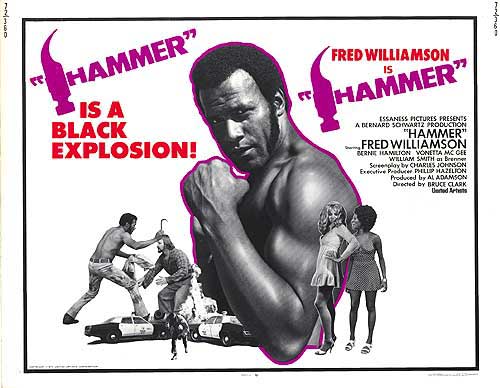
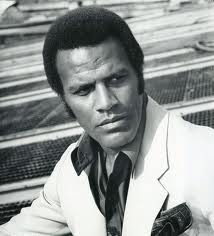
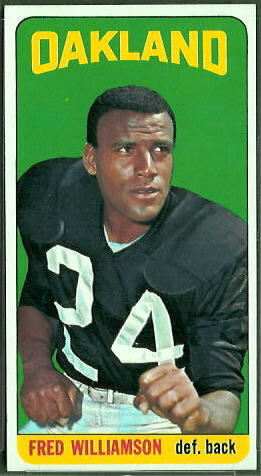
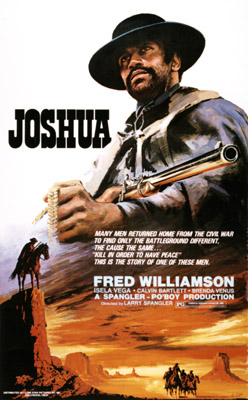
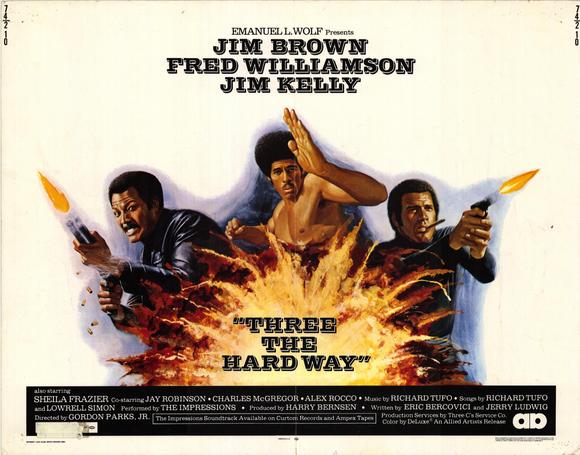
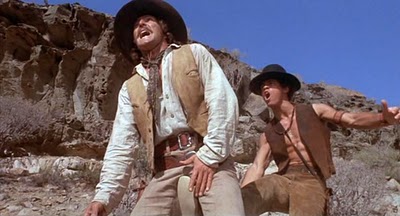
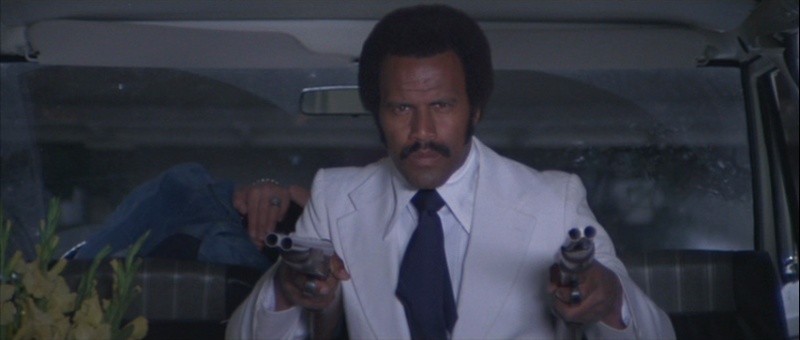
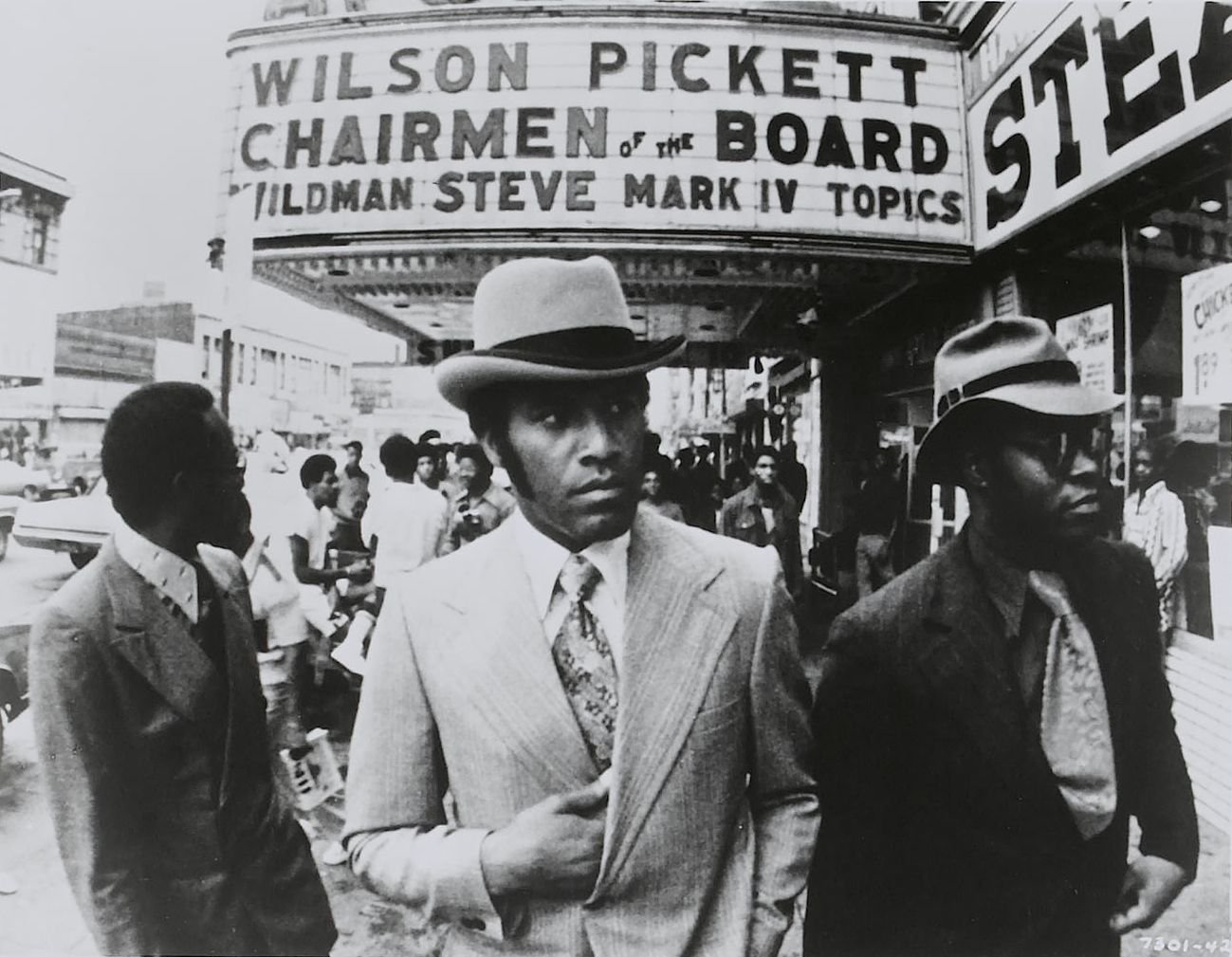


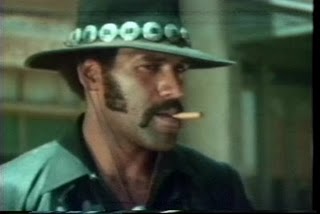
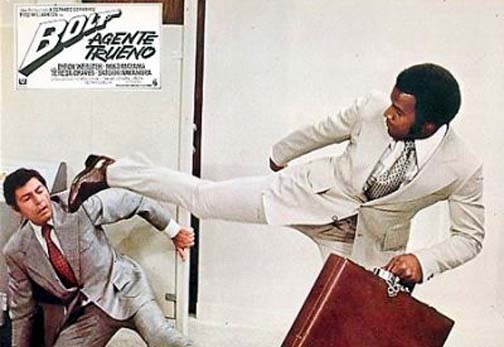
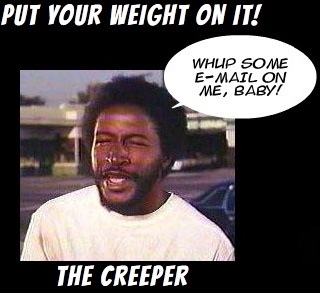

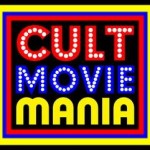




No Comments